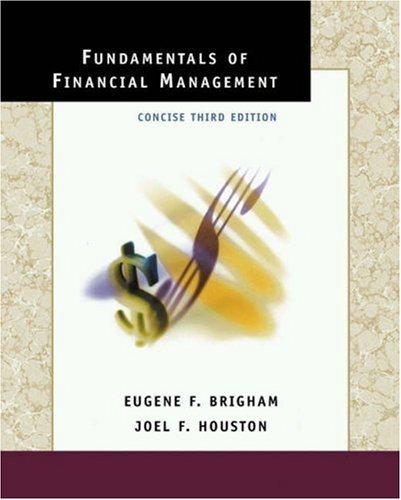Question
Key Resources Cultural Competency Cultural Competence Prompt: In Milestone Two, you will continue developing your grant proposal by focusing on the strategic plan of the
Key Resources
Cultural Competency
Cultural Competence
Prompt:
In Milestone Two, you will continue developing your grant proposal by focusing on the strategic plan of the proposed program. As you prepare the strategic plan, it is vital that you observe the tenets of cultural competence, as most public health efforts involve vulnerable populations that are marginalized, disenfranchised, or otherwise discriminated against by society (in some manner). After all, structural or systemic discrimination must be present for a health inequity to occur.
This journal will help you outline the strategic plan, but also reflect upon its observance of cultural competence. Please complete both parts A and B below.
Part A: Outline of the Strategic Plan
For this part, you will begin gathering information for Milestone Two by forming a rough draft of your strategic plan (i.e., VMOSA). Please complete the following parts of the strategic plan for this journal entry:
- Vision Statement (>10 words)
- Mission Statement (1-2 sentences)
- Objectives (3 objective statements; 1 sentence each using the SMART Objectives approach)
- Strategies (2 strategies per objective; 1-3 sentences each)
Please keep in mind that this journal is an abridged version of the strategic plan required in Milestone Two. Therefore, for the purpose of submitting a complete strategic plan in Milestone Two, please read the Milestone Two instructions/requirements carefully. Please submit your journal entry in a Microsoft Word document, using the following outline schema:
Student Name: [your full name] Proposed Program Summary: [1-2 sentences here]
- Vision Statement: The proposed program's vision is to [insert vision statement].
- Mission Statement: The proposed program's mission is to [insert mission statement].
- Objectives: The proposed program's objectives and strategies involve the following:
- Objective 1: [insert Objective 1 here]
- Strategy 1.A: [insert Strategy 1.A here]
- Strategy 1.B: [insert Strategy 1.B here]
- Objective 2: [insert Objective 2 here]
- Strategy 2.A: [insert Strategy 2.A here]
- Strategy 2.B: [insert Strategy 2.B here]
- Objective 3: [insert Objective 3 here]
- Strategy 3.A: [insert Strategy 3.A here]
- Strategy 3.B: [insert Strategy 3.B here]
Part B: Assessing Cultural Competence of the Strategic Plan
Think of the strategic plan as a process. This process has a particular structure that delivers a specific function. Study the "ASKED" approach within the Campinha-Bacote Model of Cultural Competence by reviewing the suggested resources above and finding additional resources through the library.
Focus on the foundational elements (ASKED), which include the following
- Cultural Awareness is the process of identifying the possible biases/discrimination towards a vulnerable population or marginalized group.
- Cultural Skills is the process of examining cultural/social factors (e.g., beliefs, values, norms and practices) present during the encounters with the vulnerable population or marginalized group.
- Cultural Knowledge refers to knowledge about vulnerable populations or marginalized groups and how their cultural beliefs and norms may impact the encounters with public health efforts.
- Cultural Encounters occur when public health professionals have direct contact with members of the vulnerable population or marginalized group in an effort to minimize potential biases or discriminatory practices.
- Cultural Desire refers to the motivation and the genuine desire to understand (and appreciate) the culture of a vulnerable population or marginalized group. Desire can only occur when efforts made towards cultural competence are not done out of obligation, but rather out of sincere intentions.
For Part B of the journal, please address the ASKED considerations for building a culturally competent process (from this model) using the outline below.
Cultural considerations that need to be ASKED:
Cultural Awareness: Within 2-3 sentences, please respond to the following items:
- Justify how the strategic plan accounts for the potentiality of discrimination/biases to "creep into the program's structure/function."
- How will you minimize such issues in the program development process?
Cultural Skill: Within 2-3 sentences, please respond to the following items:
- What are the relevant cultural/social factors when encountering the vulnerable population or marginalized group?
- How have the public health strategies been tailored for the vulnerable population or marginalized group?
Cultural Knowledge: Within 2-3 sentences, please respond to the following items:
- How would/could members of the vulnerable population or marginalized group perceive this public health effort?
- Specify the program strategies that account for knowing the perceptions within the culture.
Cultural Encounters: Within 2-3 sentences, please respond to the following items:
- In what ways will authentic encounters be fostered by public health professionals with the vulnerable population or marginalized group?
- Specifically, what strategies will be used to optimize learning from these encounters?
Cultural Desire: Within 2-3 sentences, please respond to the following items:
- How could cultural desire be fostered throughout program development?
- What indicators could measure the extent of cultural desire?
Your response to Part B will be graded using two critical elements:
- ASKED Completeness: The response addressed all elements of ASKED.
- Cultural Desire: The analysis demonstrated an authentic desire to understand different cultures (in other words, the non-dominant groups that are vulnerable, disenfranchised, or left marginalized by society)
Step by Step Solution
There are 3 Steps involved in it
Step: 1

Get Instant Access to Expert-Tailored Solutions
See step-by-step solutions with expert insights and AI powered tools for academic success
Step: 2

Step: 3

Ace Your Homework with AI
Get the answers you need in no time with our AI-driven, step-by-step assistance
Get Started


